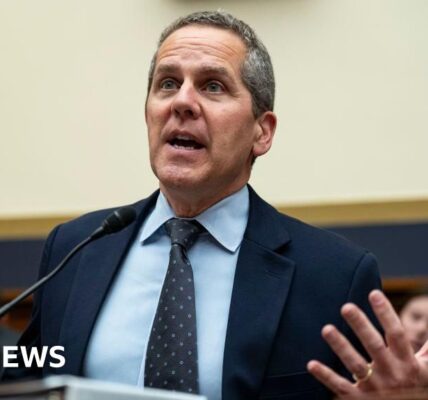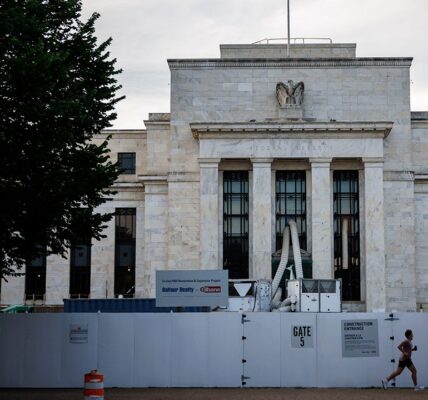Banking and business groups sued the Federal Reserve over the central bank’s annual stress tests, saying they’re seeking more transparency and input into how the rules are adopted.
The groups, including the Bank Policy Institute and American Bankers Association, contend that the Fed’s criteria for the tests are designed in secret and produce “vacillating and unexplained requirements and restrictions on bank capital.” That’s affecting the cost of financial services in the US, according to a federal lawsuit filed Tuesday in Columbus, Ohio.
The lawsuit asks the court to declare unlawful the models and scenarios used in the 2024 stress test, as well as those in the 2025 and 2026 versions. The groups also want the Fed to allow for public comments on the models before they’re implemented.
The Fed board’s “lack of transparency results in significant and unpredictable volatility in banks’ capital requirements,” the groups wrote in the suit. “This, in turn, impairs the ability of banks to efficiently deploy capital, including making loans to small businesses and others who are crucial engines of growth and job creation in the US economy.”
A Fed spokesperson declined to comment.
The groups, which represent firms including JPMorgan Chase & Co., Goldman Sachs Group Inc. and Bank of America Corp., acknowledged that the Fed has announced its intention to make changes to the process, but they said there is a February deadline for court challenges to some of the procedures. The suit follows the central bank’s announcement Monday that it will overhaul its tests to smooth out some of the volatility in required capital levels from year to year.
The annual checkup on bank health, imposed after the Great Financial Crisis, seeks to gauge how lenders would fare during a hypothetical recession. Under the Fed’s proposed revised plan, results would be averaged over two years, and the regulator would solicit public comment on the hypothetical scenarios each year before they’re finalized. The central bank said Monday that it intends to begin the public comment process on the potential changes early next year.
The Fed is facing an evolving legal landscape and changes in the framework of administrative law, with US agencies under pressure from the incoming Trump administration and bankers to regulate with a lighter touch. Earlier this year, the US Supreme Court curtailed the power of regulators to interpret laws.
Wall Street executives and the trade groups that represent them have long criticized aspects of various capital requirements, but those criticisms reached a fever pitch after a trio of regulators including the Fed proposed a hike known as Basel III Endgame last year.





